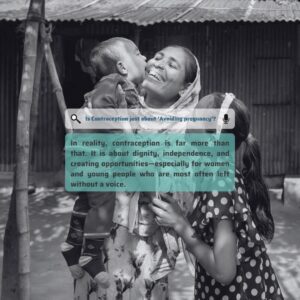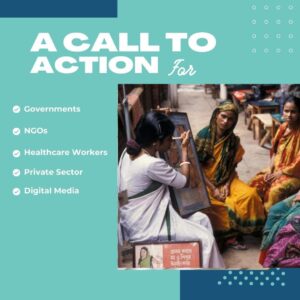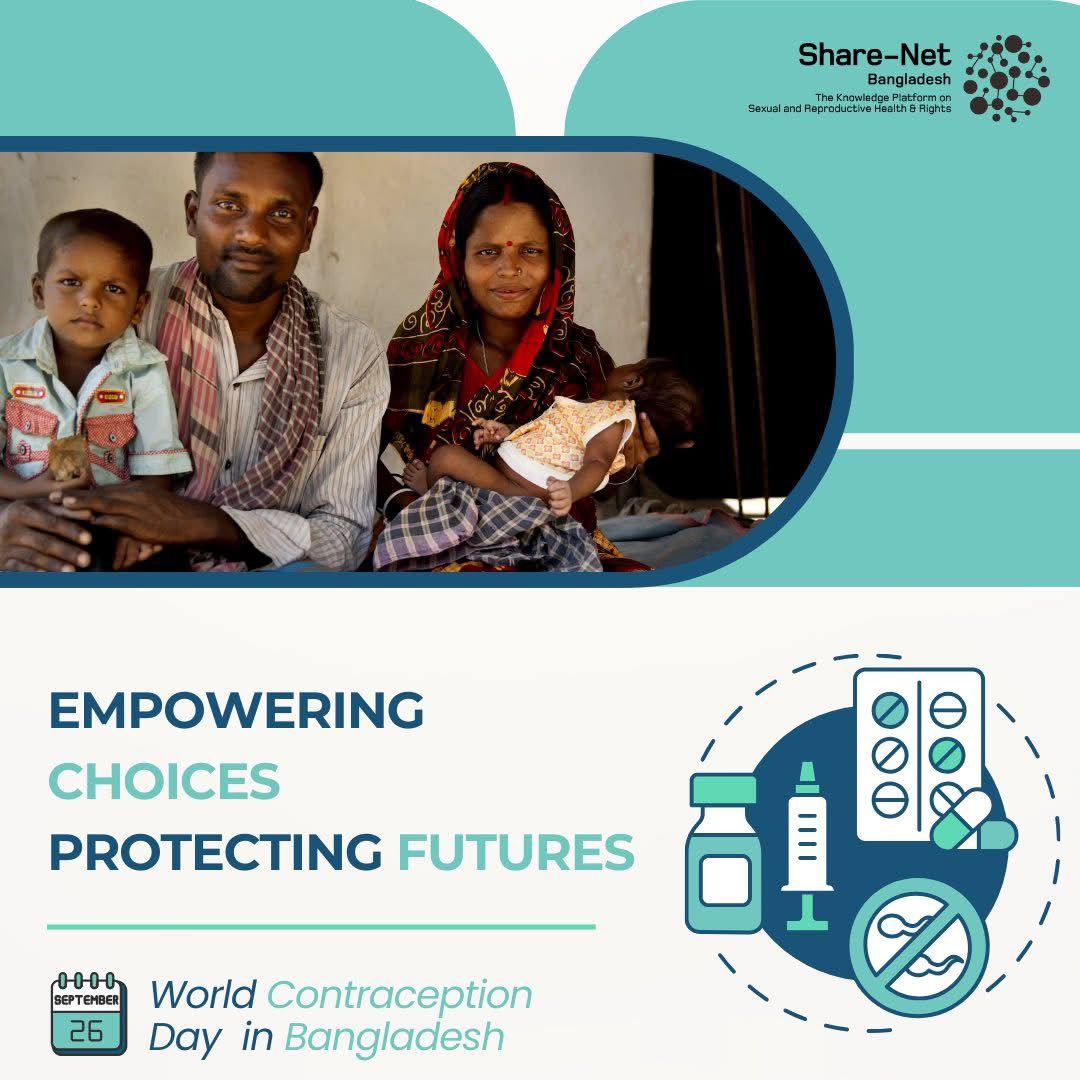Empowering Choices, Protecting Futures: World Contraception Day in Bangladesh
Every year on September 26, people across the globe observe World Contraception Day, a moment to reflect on why reproductive health and informed decisions matter so deeply. This year’s theme, “A choice for all – agency, intention, access,” reminds us of something very simple yet powerful: everyone deserves the freedom to decide if, when, and how they want to become parents—without unnecessary barriers, judgement, or inequality shaping that choice.

Contraception has often been reduced to the idea of “avoiding pregnancy”, but in reality, it is far more than that. It is about dignity, independence, and creating opportunities—especially for women and young people who are most often left without a voice. In Bangladesh, open conversations about sexual and reproductive health are still not very common. As a result, many women and girls struggle to find accurate information, affordable contraceptives, or even safe spaces where they can ask questions without fear of judgement. These gaps frequently lead to unintended pregnancies, unsafe abortions, and health risks that could have been prevented with timely support.
The 2025 theme highlights three key elements. First is agency—the right of every individual, particularly women, to make decisions about their own bodies and futures. Second is intention—the ability to plan parenthood on one’s own terms, free from the pressure of family, social expectations, or harmful traditions. And third is access—making sure that contraceptives, counselling, and education are within reach for all, including those in rural or marginalised communities who are too often left behind.
Bangladesh has made progress in family planning and reproductive health over the years, but gaps remain wide. Adolescent girls rarely receive comprehensive sexuality education, while women in poorer households may face direct or indirect pressure from partners or in-laws. For many, visiting a health centre can feel intimidating or unsafe, and myths surrounding contraceptives still create fear and hesitation. These challenges are a strong reminder of why stronger policies, better awareness campaigns, and more youth-friendly services are so urgently needed.

World Contraception Day 2025 is a call to action—not just for governments, but also for NGOs, healthcare workers, schools, and the private sector. Local health providers, teachers, and the media can all play vital roles in breaking stigma and sharing accurate information. Expanding availability through pharmacies, community clinics, and even digital platforms could make access simpler and safer for many.
At its core, this day is not only about contraception—it is about fairness and justice. When women and men are able to choose freely, families become healthier, communities stronger, and societies more equal. By truly committing to agency, intention, and access, Bangladesh has the chance to build a future where reproductive rights are not privileges but basic guarantees—upheld with dignity and confidence for every individual.
Source: World Contraception Day, UNFPA

